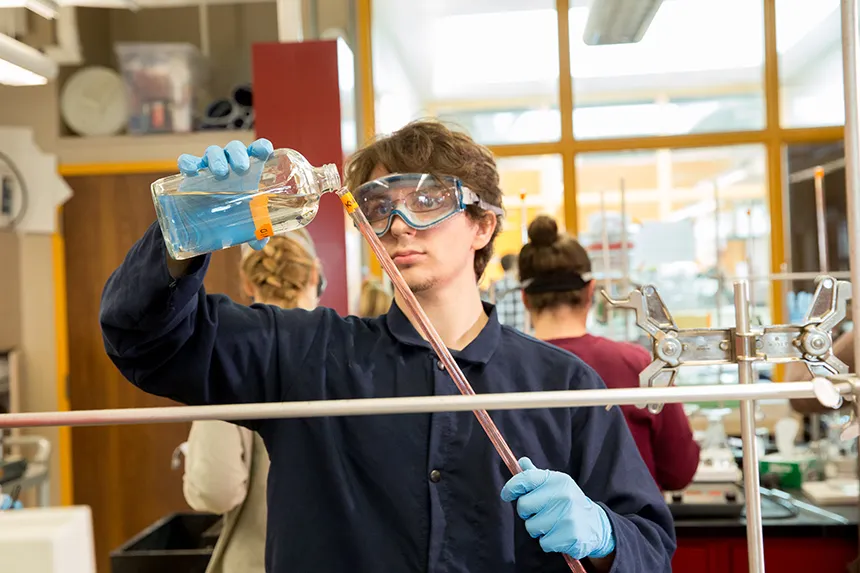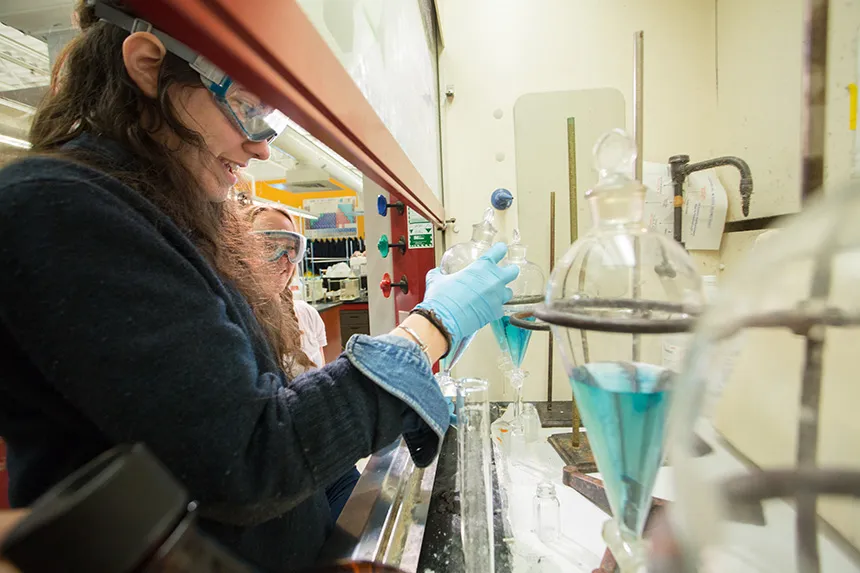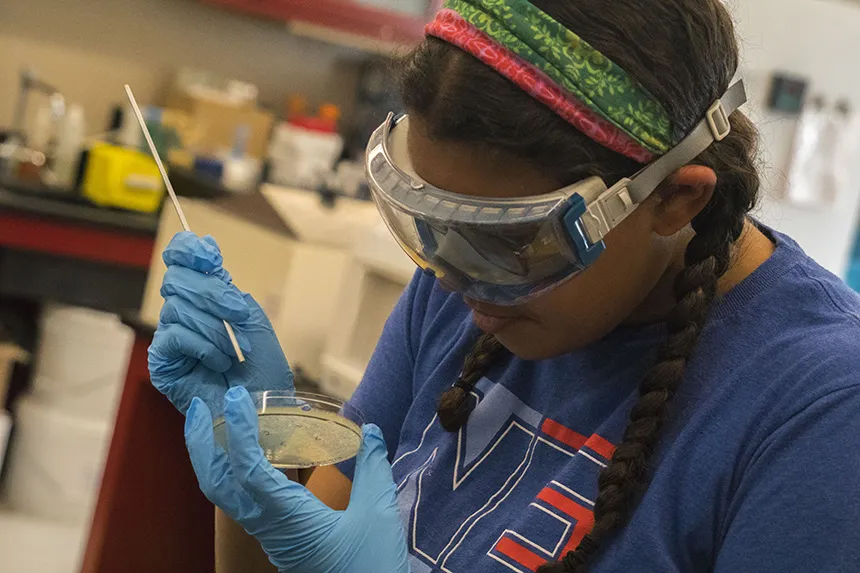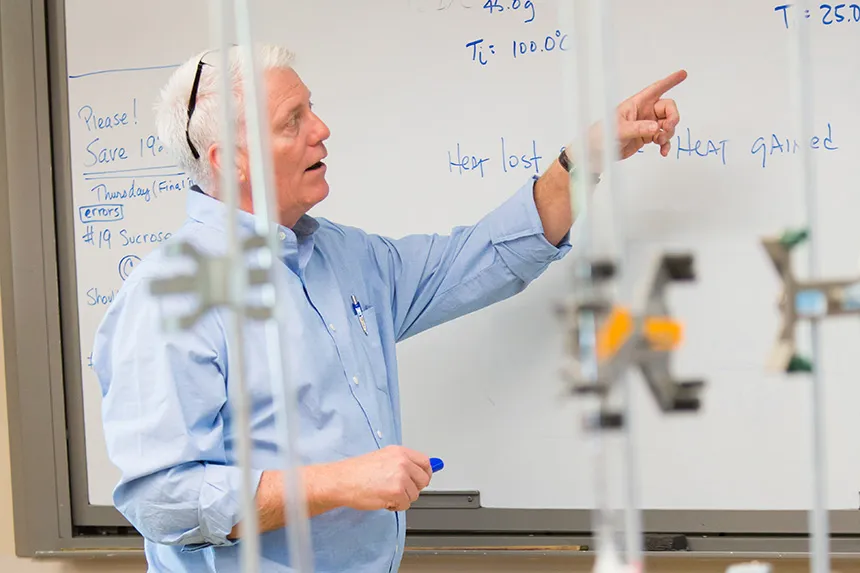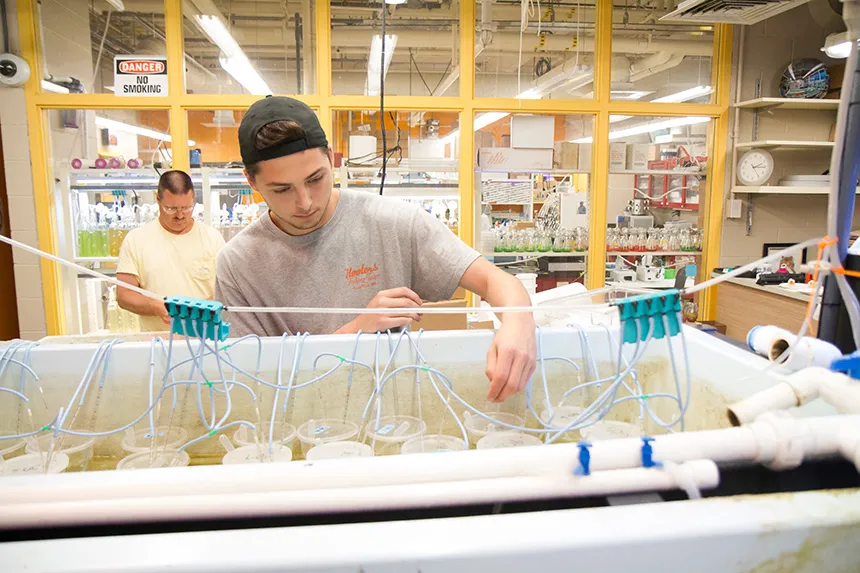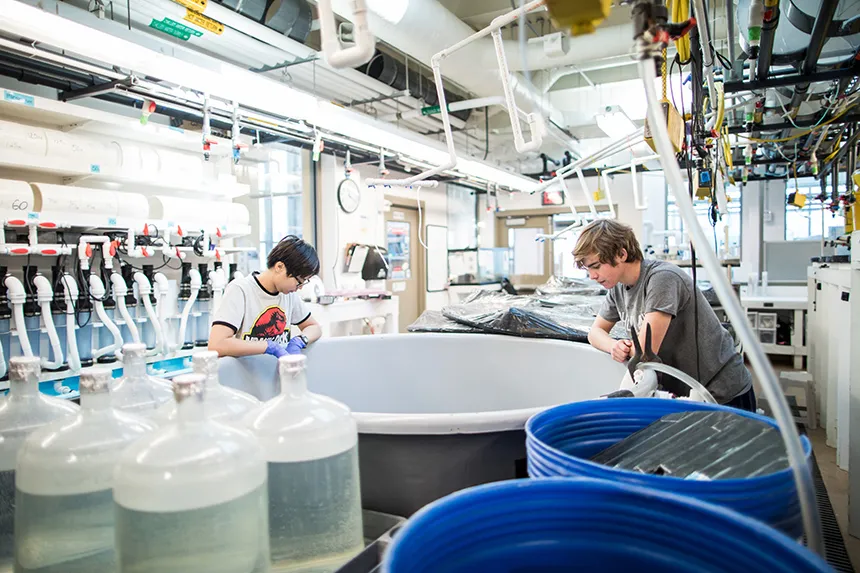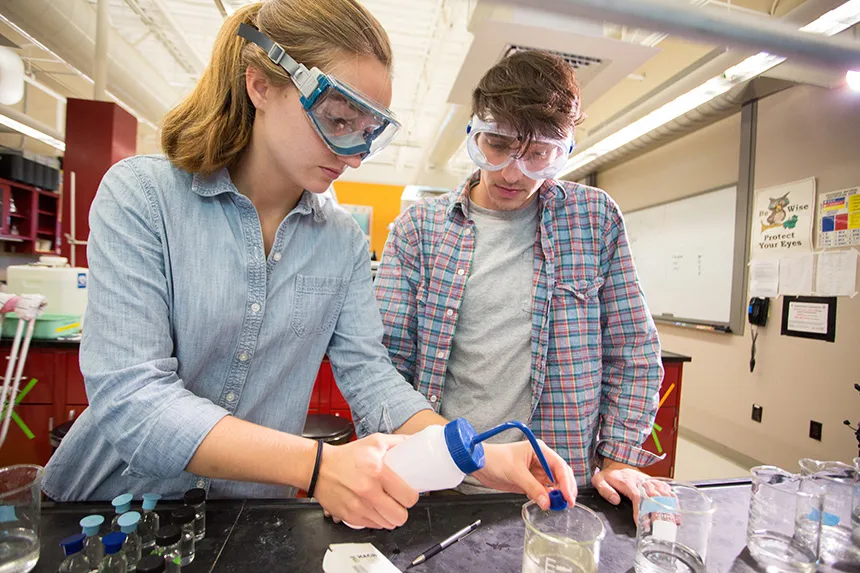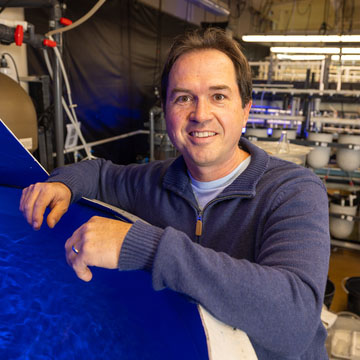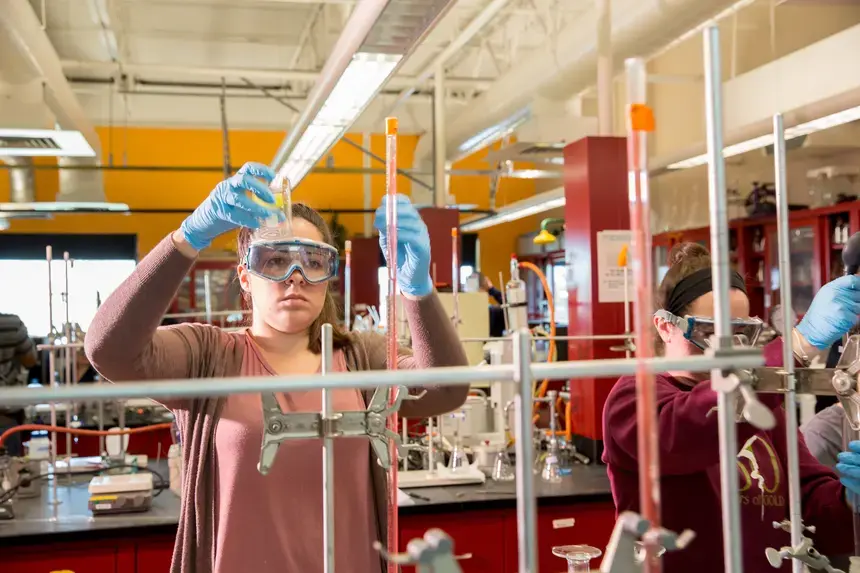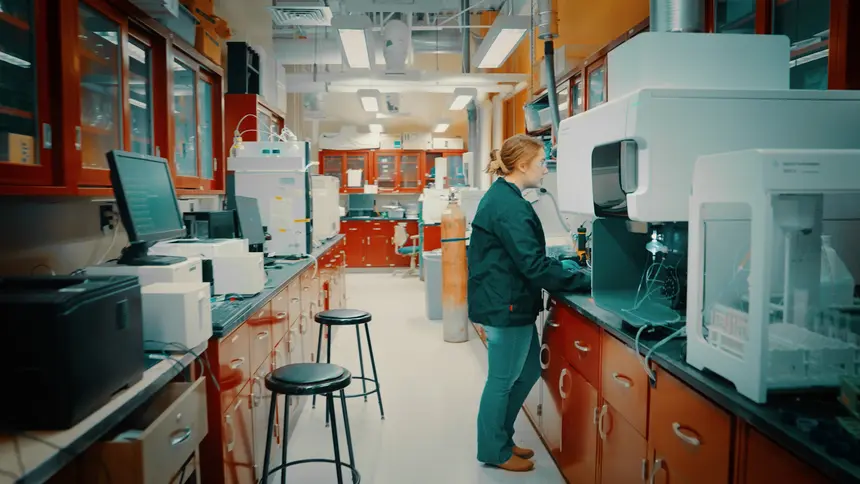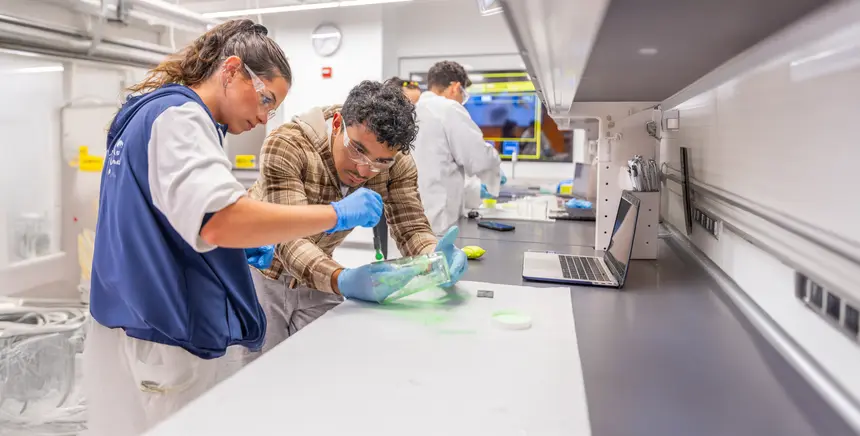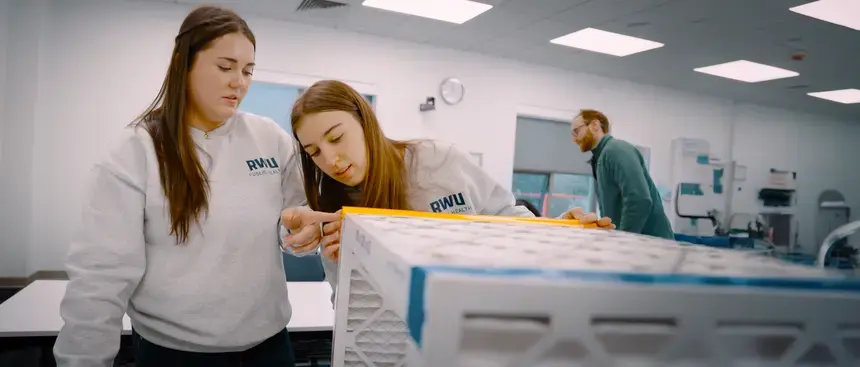About the Biology Major
QUICK LINKS
Statistics

Placement of 2022 Grads
Our 2022 graduates found success in employment or in graduate school within 6 months of graduation.

Real-World Opportunities
Biology and Environmental Science students participate in community-engaged projects and internships during their undergraduate, studies, giving them the skills and diverse experiences that are most desirable for employers and graduate school admission.

Hands-On Research
Each academic year, over 80 students conduct research with faculty and/or care for organisms in our labs. Students are encouraged to participate in research opportunities starting in their first year.
Biology Degree Requirements
State-of-the-Art Biology Facilities
The Marine and Natural Sciences building is equipped with advanced laboratory research space along with an Aquatic Diagnostic Laboratory and a greenhouse. The facilities house advanced research instruments including real-time PCR machines, fluorescence and confocal microscopes, cell culture facilities, and a flow cytometer. Our researchers use model organisms including bacteria, yeast, round worms, fruit flies, amoeba, and zebrafish, and also study terrestrial and marine microbes, invertebrates, desert plants, and macroalgae.
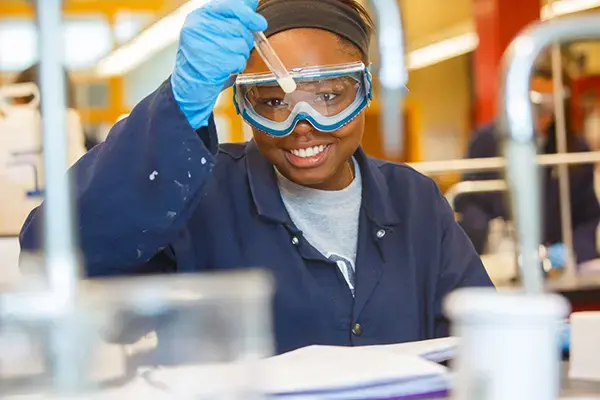
Learn About Health Professions Advising
Are you interested in a career in the health professions and want more information on developing your studies toward professional preparation? Our interdisciplinary team of Faculty Health Profession Advisors help students chart individualized pre-Health paths including Pre-Medicine, Pre-Dentistry, Pre-Pharmacy, Pre-Veterinary Medicine, and more. Visit Health Professions Advising for resources on how you can explore your options for health professions pathways.
Explore Health Professions Advising
Earn a Pharm.D. in Seven Years
Instead of taking eight years to get a Pharm.D., the 3+4 Biology-Pharm.D. dual degree program enables students to earn a B.S. in Biology at RWU and a Pharm.D. from the Albany College of Pharmacy and Health Sciences in only seven years.
Hear from Hawks

Mary D’Angelo '21
“Undergraduate research at Roger Williams University changed my entire educational experience. It taught me a lot more about my field, and it is why I got into my Ph.D. program.”
Mary D’Angelo '21
Ph.D. Program in Biomedical Sciences at the University at Buffalo

Callie Sullivan '22
"I knew I wanted to work in genetic counseling, which has a very large biology component. My senior year, I worked in Dr. Chris Burtner’s lab on genetics, which made me love doing research and inspired me to look for research jobs specifically."
Callie Sullivan '22
Research Technician at Massachusetts General Hospital in Boston
Internships and Field Experience
As a Biology major, you can gain real-world experience through an internship, which often leads to full-time employment. Our students intern at organizations including:
- Pfizer, Inc.
- Amgen
- Centers for Disease Control and Prevention
- The Rhode Island Department of Health
- Save the Bay
- Audubon Education Center
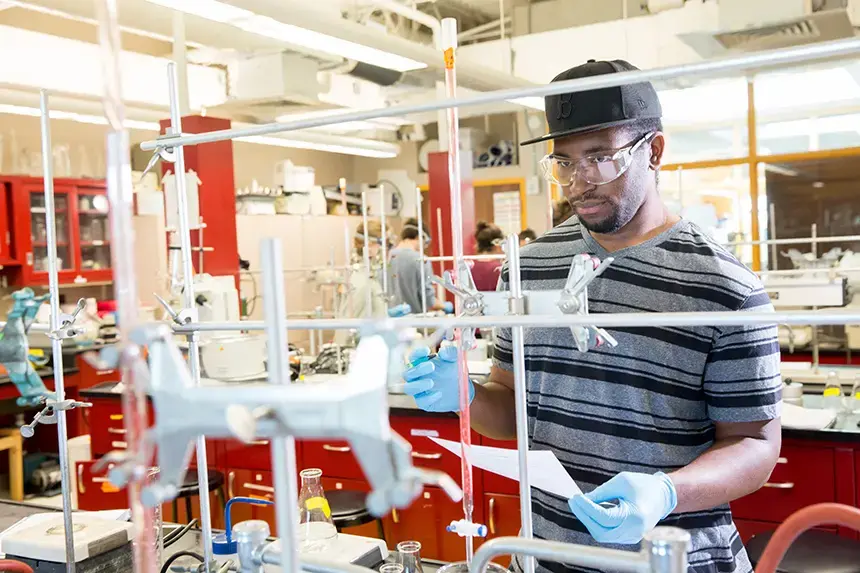
Capstone Projects and Research
Undergraduate research is integrated into the Biology curriculum, with opportunities for students to earn academic credit for doing research, to develop proposals and compete for small grants to fund their projects, and to present their findings at regional, national and international conferences. Projects in the Biology department address questions of evolutionary biology, molecular biology of aging and the design of antimicrobial drugs.
Recent projects include:
Faculty Experts in Biology
Ways to Get Involved
Multicultural STEM Alliance
The Multicultural STEM Alliance aims to strengthen the sense of community among students of color in STEM majors at RWU by offering activities, mentorship, and networking opportunities at and outside of the university.

